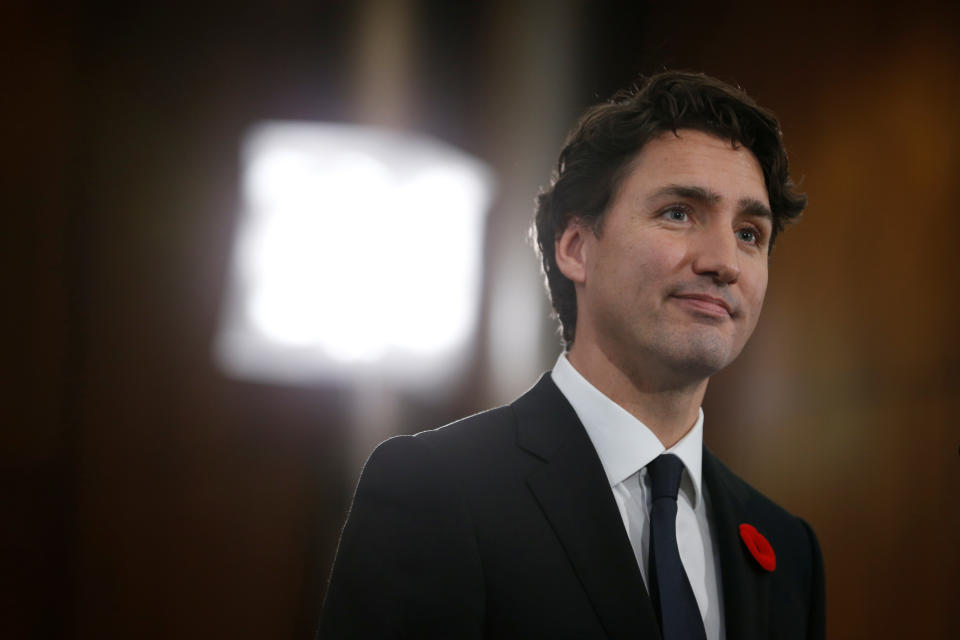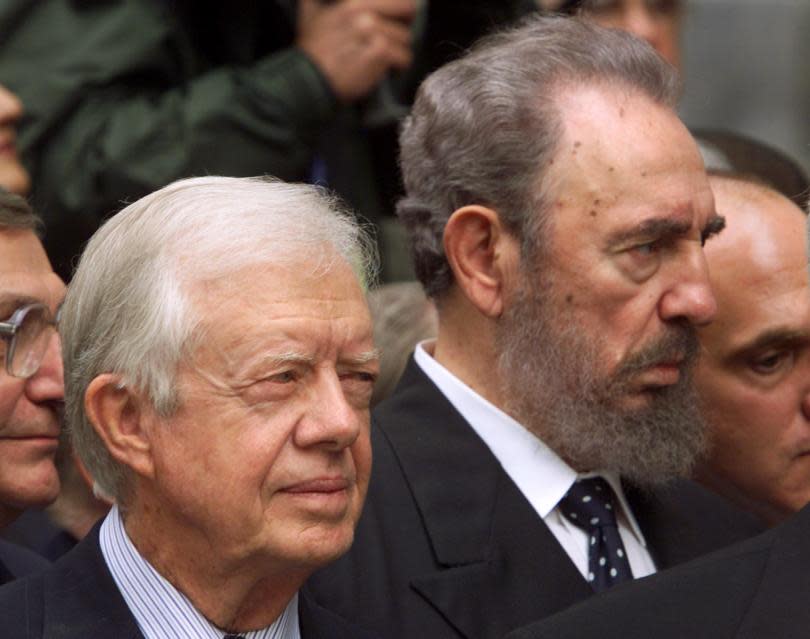Justin Trudeau heads to Cuba as Trump win clouds relations with U.S.
Family ties between the Trudeaus and the Castros guarantee there'll be something to talk about when Prime Minister Justin Trudeau visits Havana this week. A meeting with President Raul Castro is on the agenda for Tuesday and a meeting with Fidel Castro is also being discussed, though not confirmed.
"I know it has been prepared," Julio Garmendía Pena, Cuba's ambassador in Ottawa, told CBC News. "There is an intention. [Fidel Castro] is not a young man. He has to be, let's say, in shape that day, but I hope that will be the case and the meeting should take place," he said.
"If it happens, it will be a great opportunity for both of them to meet again and to say hello to each other and remember the time when Fidel met with his father," he said, recalling Pierre Trudeau's visit to Havana in 1976.
But one of the main purposes of the prime minister's visit has been thrown into doubt by the surprise election of Donald Trump as president of the United States.
Canada had hoped to further its role as honest broker between Cuba and the U.S., a role that has seen great success over the past three years.
In June 2013, the Canadian government hosted the first of seven secret meetings between Cuban officials and a White House delegation led by President Barack Obama's deputy national security adviser, Ben Rhodes. The meetings led to the restoration of diplomatic relations between the U.S. and Cuba after more than 50 years and the easing of a U.S.-led trade embargo.
U.S. officials have said that the dysfunctional relationship with Cuba was hurting the relationship with the rest of Latin America. The main motive for the détente was not so much to help Cuba or to encourage it to reform, as to remove an irritant that was harming the United States abroad.
And so there was every reason for Canada to believe that the U.S. would be interested in deepening the rapprochement, and that Canada's Trudeau government, with its connections on the island, could play a role as matchmaker, and in the process burnish its international reputation as an impartial mediator.
All of that made a lot of sense until last Tuesday.
Trump to Cuba: Meet demands or else
When the Obama administration first moved to unfreeze the relationship with Cuba in 2015, Trump told the Daily Caller he was not opposed to "the concept of opening with Cuba."
But last month, as Trump campaigned in Miami, he warned Cuba that Obama's policy of détente was on his to-undo list.
"All of the concessions that Barack Obama has granted the Castro regime were done through executive order," he told supporters at the James L. Knight Center, "which means the next president can reverse them — and that is what I will do, unless the Castro regime meets our demands."
Those demands include Cuba's acceptance of multiparty democracy and the liberation of all political prisoners.
Ironically, there is evidence that Trump himself violated the embargo by sending a business delegation to the island in 1998 to explore the possibility of opening casinos there.
Newsweek recently published documents showing that Trump paid $68,551 for the trip.
But the same year he paid that bill, Trump also gave a speech to the Cuban American National Foundation in which he called for the strict enforcement of sanctions.
"As you know — and the people in this room know better than anyone — putting money and investing money in Cuba right now doesn't go to the people of Cuba. It goes to Fidel Castro. He's a murderer. He's a killer. He's a bad guy in every respect, and, frankly, the embargo must stand if for no other reason than, if it does stand, he will come down."
Hostile player
Whatever Trump's true beliefs, the Cuban Communist Party clearly regards him as a hostile player.
Trudeau's first day in Havana coincides with the launch of a giant Cuban military exercise called Bastion 2016, announced the morning after Trump's surprise victory.
Bastion exercises have been called about half a dozen times before, nearly always in moments of heightened tension with the United States, and are designed to simulate an attempted invasion of the island.
In language reminiscent of the height of the Cold War, Cuba's Ministry of the Revolutionary Armed Forces announced the exercise "constitutes a fundamental element of the implementation of the doctrine of War by the Entire People."
There's very little likelihood of an invasion of Cuba, of course. But there also seems little likelihood that Canada will be able to play a matchmaker role with the incoming U.S. administration.
Carlo Dade, a Latin America analyst with the Canada West Foundation, says that doesn't mean the visit now serves no purpose.
"The role shifts a little bit. Trudeau would have had two objectives going down: one brokering relations between the U.S. and Cuba, the traditional role. But there are also Canadian foreign policy objectives: Cuba has always been important for Canada as a symbol of our differences with the U.S., our ability to work closely and be integrated with them, but still to maintain an independent foreign policy."
Canada never broke diplomatic relations with Cuba, even when every other country in the hemisphere except Mexico did, and that relationship stands as a symbol of Canada's independence from Washington in its dealings with other nations of the Americas.
"So sending that message to the rest of Latin America before he heads down to Argentina and the APEC Summit in Peru would also be important," says Dade.



